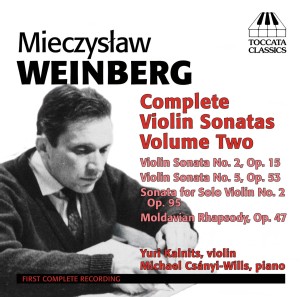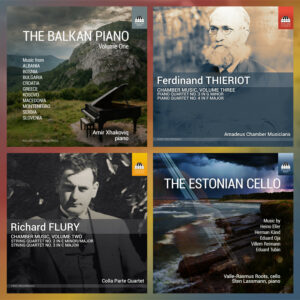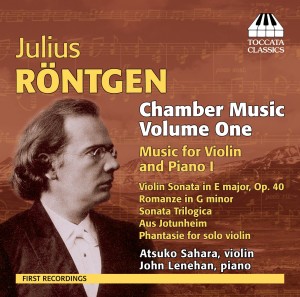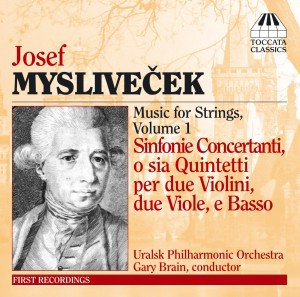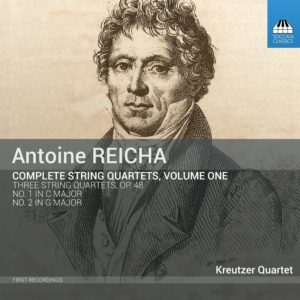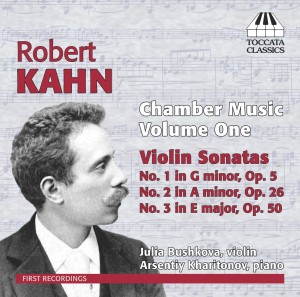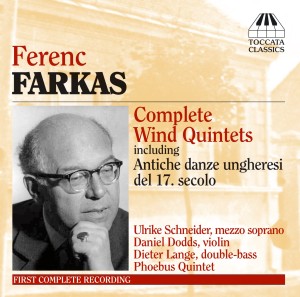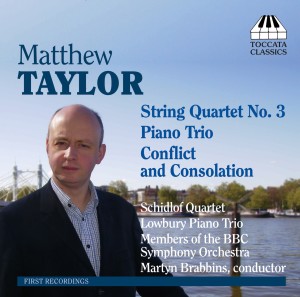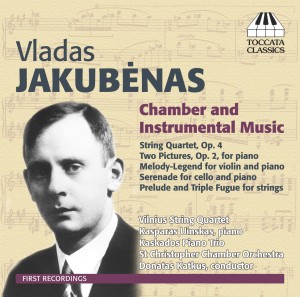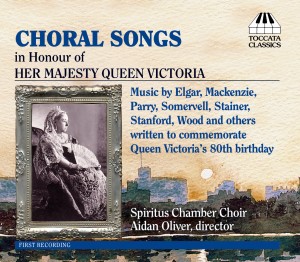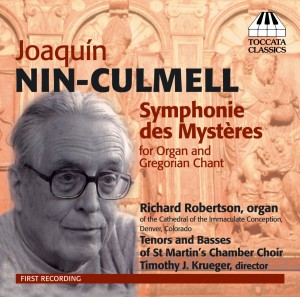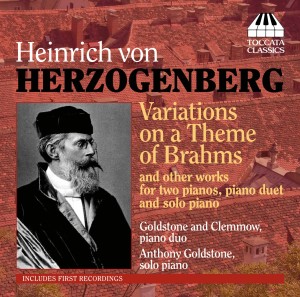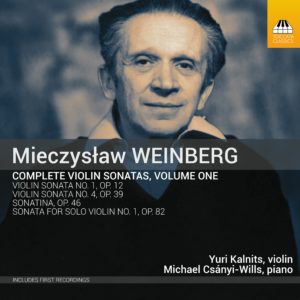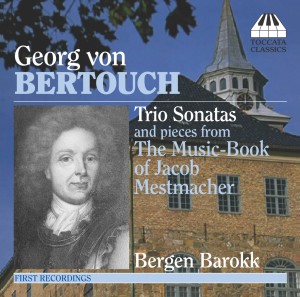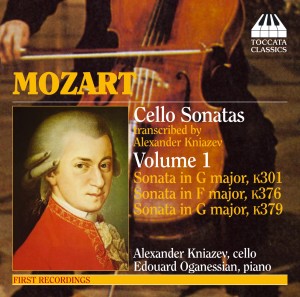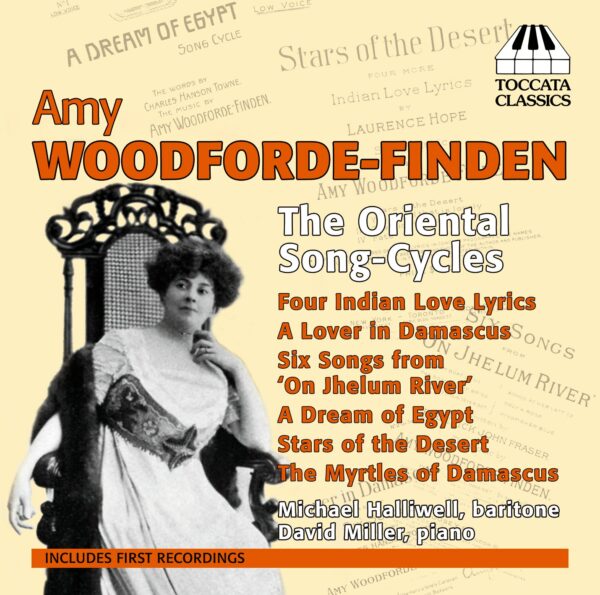Search Results for "Space Wolf: The First Omnibus mp3 torrent" – Page 47
Mieczysław Weinberg: Complete Violin Sonatas, Volume Two
Mieczysław Weinberg, born in Warsaw in 1919, became a close friend of Shostakovich in Moscow, after fleeing eastwards before the invading Nazis in 1939. His style has much in common with Shostakovich, as these four violin works show: fluent contrapuntal skill, a keen feeling for melody, often inflected with Jewish cantilena, and an acute sense of drama which combines a natural narrative manner with an extraordinary ability to create atmosphere, often from just a handful of notes. Since his death in 1996, his music has increasingly been recognised as some of the finest by any twentieth-century composer.
Yuri Kalnits, violin
Michael Csányi-Wills, piano
September 2024 Bundle
Included in this bundle:
Julius Röntgen: Chamber Music, Volume One
The vast output of the German-Dutch composer Julius Röntgen (1855-1932) has begun to emerge from obscurity, with a number of recordings testifying to his astonishing craftsmanship and exquisite sense of melody, balancing skill and spontaneity. The works recorded here confirm his ability to write one gorgeous tune after another.
Atsuko Sahara, violin
John Lenehan, piano
Josef Mysliveček: Music for Strings, Volume One
Josef Mysliveček (1737–81) – born in Prague, based in Italy – was one of the chief architects of the 'high’ Classical style that emerged in Europe around 1770, and one of the most important musical influences on the young Mozart. The works on this CD, composed in the mid-1760s, were published to be performed as string symphonies, as here, or as quintets for two violins, two violas and cello, the earliest such works ever to appear in print. Their grace, passion and tenderness help explain why Mozart so admired Mysliveček’s operas and instrumental music.
Uralsk Philharmonic Orchestra, orchestra
Gary Brain, conductor
Anton Reicha: Complete String Quartets, Volume One
The Czech-born composer Anton Reicha (1770–1836) was an exact contemporary of Beethoven – and his close friend from their mid-teens. The music of each man shows an awareness of what the other was doing: they showed each other their compositions-in-progress. But although Reicha was closely associated with one of the best-known names in western culture, his own music has been grievously neglected: only his woodwind quintets have achieved any currency. Of his vast cycle of almost forty string quartets just one has been recorded before – an omission this ambitious project intends to put right, thereby revealing one of the most inventive and engaging spirits in classical music.
Kreutzer Quartet
Robert Kahn: Chamber Music, Volume One
Robert Kahn, born in Mannheim in 1865, produced a large body of gloriously attractive chamber music, expertly crafted and basically Brahmsian in style. His three violin sonatas, written over a twenty-year-period at the end of the nineteenth and beginning of the twentieth centuries, reveal a lyrical composer in the Romantic mainstream but capable of considerable formal inventiveness.
Julia Bushkova, violin; Arsentiy Kharitonov, piano
Ferenc Farkas: Complete Wind Quintets
Ferenc Farkas (1905–2000) was one of the longest-lived members of the wave of Hungarian nationalist composers which began with the rise of Béla Bartók and Zoltán Kodály. A student of Ottorino Respighi in Rome, Farkas blended Respighi’s Latin melodiousness with the Magyar folk-heritage that Bartók and Kodály had made the central element of Hungarian music. His Old Hungarian Dances of the 17th Century have become a staple of the wind-quintet repertoire; the other five works on this disk display the same irrepressible joie de vivre.
Ulrike Schneider, mezzo soprano
Daniel Dodds, violin
Dieter Lange, double-bass
Phoebus Quintet, wind quintet
Christoph Bösch, flute
Barbara Zumthurn-Nünlist, oboe
Dimitri Ashkenazy, clarinet
Martinů Roos, horn
Susan Landert, bassoon
August 2024 Bundle
Included in this bundle:
Matthew Taylor: Chamber Music, Music for Brass
The music of Matthew Taylor (b. 1964) seeks to give the symphonic tradition continued relevance in the modern age. These three works, composed consecutively between 1993 and 1996, demonstrate Taylor’s concern with the essentials of symphonic thought in the long-term generation and deployment of energy, using a language which stems from the legacy of Sibelius and Nielsen, with points of reference to Robert Simpson, Vagn Holmboe and Michael Tippett.
Lowbury Piano Trio, piano trio
Schidlof Quartet, string quartet
Members of the BBC Symphony Orchestra, ensemble
Martyn Brabbins, conductor
Vladas Jakubėnas: Chamber and Instrumental Music
As composer, critic, teacher and musical activist, Vladas Jakubėnas (1904–76) was one of the major cultural figures in pre-World War Two Lithuania, before his post-War exile in the USA. As a student of Schreker in Berlin in 1928–32, he initially wrote in a Neoclassical style – as most of the works on this CD attest – and was nicknamed 'the Lithuanian Hindemith’. Back home, he began to compose in a late-Romantic, gently modernist idiom, tinged with the influence of Lithuanian folk-music.
Vilnius String Quartet, string quartet
Kasparas Uinskas, piano
Rusnė Mataitytė, violin
Edmundas Kulikauskas, cello
Albina Šikšniūtė, piano
St Christopher Chamber Orchestra, chamber orchestra
Donatas Katkus, conductor
Choral Songs in honour of Her Majesty Queen Victoria
In celebration of Queen Victoria’s 80th birthday in 1899, thirteen of the leading composers and poets of the day collaborated on a collection of partsongs to rival their Elizabethan model, The Triumphs of Oriana. Published in a limited edition of only 100 copies, this superb sequence, studded with musical gems, provides a fascinating snapshot of the British musical renaissance on the eve of the twentieth century.
Spiritus Chamber Choir, choir
Aidan Oliver, director
Joaquín Nin-Culmell: Symphonie des Mystères
Joaquín Nin-Culmell (1908–2004) was a student of Dukas and Falla and his early music reflects his Spanish background. The Symphonie des Mystères (1992–4) for alternating Gregorian chant and organ, is a product of the religious devotion of his old age, the chant sections setting in bold relief the austerely passionate organ commentaries, which have an affinity with Messiaen, as Nin-Culmell’s music traces a dramatic arch charting the birth, crucifixion and resurrection of Christ.
Richard Robertson, organ
St. Martin’s Chamber Choir, choir
Timothy J. Krueger, conductor
Heinrich von Herzogenberg: Piano Music
Heinrich von Herzogenberg (1843–1900), though a highly respected figure in his own time, has only recently begun to be rediscovered as a gifted and immediately communicative composer. His music, like that of his hero, Brahms, offers an effortless flow of beautiful melody – and, as also with Brahms, behind the apparently serious demeanour there lurks plenty of rhythmic pep and an easy-going sense of fun.
Anthony Goldstone and Caroline Clemmow, piano duet
Anthony Goldstone, piano
Mieczysław Weinberg: Complete Violin Sonatas, Volume One
Mieczysław Weinberg, born in Warsaw in 1919, became a close friend of Shostakovich in Moscow, after fleeing eastwards before the invading Nazis in 1939. His vast output includes 26 symphonies, seven operas, seventeen string quartets and much other chamber music and some 200 songs. His style has much in common with Shostakovich, as these four violin works show: fluent contrapuntal skill, a keen feeling for melody, often inflected with Jewish cantilena, and an acute sense of drama which combines a natural narrative manner with an extraordinary ability to create atmosphere, often from just a handful of notes. Since his death in 1996, his music is being discovered by musicians and listeners all around the world.
Yuri Kalnits, violin
Michael Csányi-Wills, piano
Georg von Bertouch: Trio Sonatas and pieces from The Music Book of Jacob Mestmacher
Georg von Bertouch (1668–1743) was a man of action, quite literally: he took part in no fewer than 22 battles, and ended his career as commandant of Akershus Castle, which still overlooks the harbour in Oslo – the portrait on the cover of this CD was photographed in the office of the present-day commandant. But Bertouch, a German-born Norwegian, was also one of the leading composers of the day, corresponding with Bach and other prominent musicians. His music reveals a knowledge of Corelli and other contemporary developments, but retains a fresh, almost innocent, spontaneity with an infectious appeal. Here it is interspersed with dances and airs used in domestic music-making in Baroque Bergen.
Bergen Barokk
Mozart: Cello Sonatas, Volume One
Although Mozart wrote no fewer than 34 sonatas for violin and keyboard, he didn’t compose even one for cello. Alexander Kniazev’s remarkable transcriptions of three of the violin sonatas for cello and piano go some way to remedying that deficiency. They transform the works, too: the cello brings out the rich, proto-Romantic sonorities implicit in the music.
Alexander Kniazev, cello
Edouard Oganessian, piano
Your Basket
Stay In the Know
JOIN THE TOCCATA NEWSLETTER
"*" indicates required fields
By visiting our site, you agree to our privacy policy regarding cookies, tracking statistics, etc.
